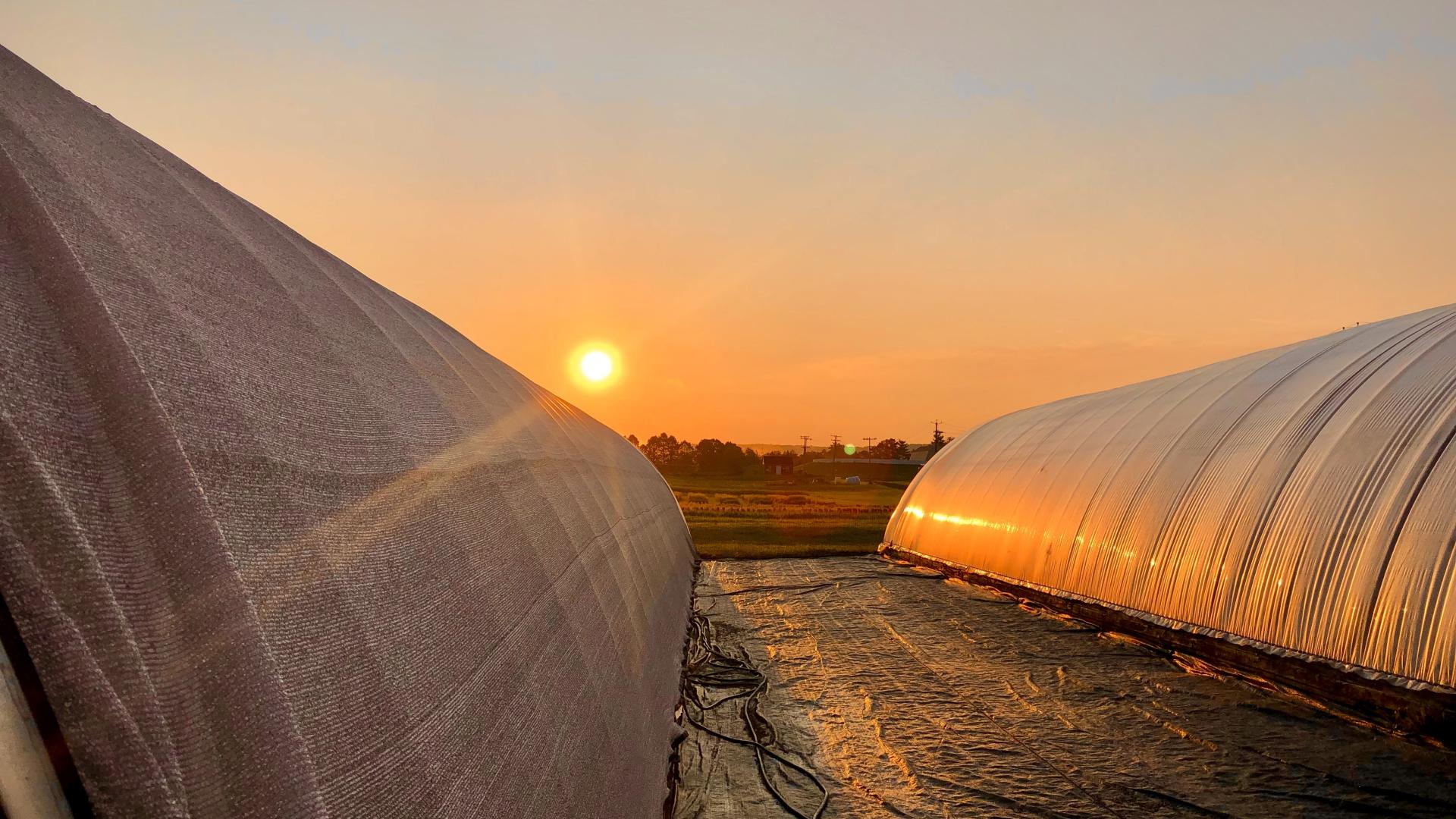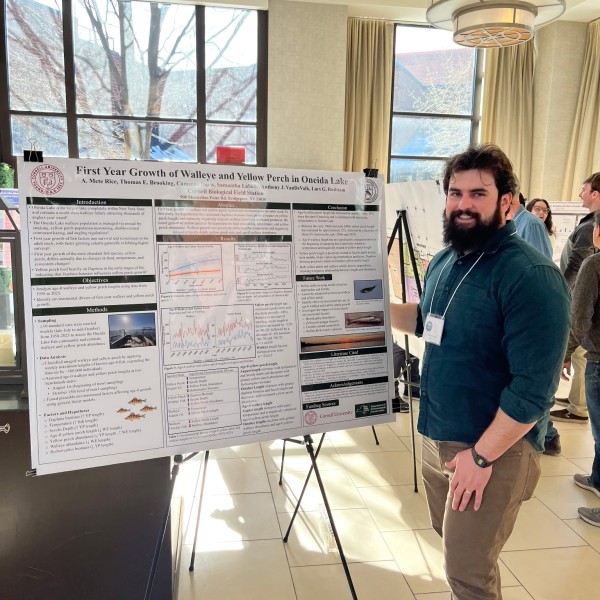As Community Food Systems minors, students engage with community-based organizations to gain rich, hands-on experiences in the food system. This narrative is a reflection of Madonna Linares ‘22’s experience working with Dilmun Hill Student Farm.
Dilmun Hill is a student-run farm that has been practicing sustainable agriculture on Cornell University's campus for more than a decade. It provides students with opportunities for experiential learning, group collaboration and research.
One day, while I was working as a manager at the student farm on campus, a few deer got into our fence somehow. Someone must have left one of the gates open. Dilmun Hill Student Farm is technically located inside of Cornell Orchards, and so we share a fencing system. The staff at Cornell Orchards realized the deer were on their property first, and, in trying to chase them off, they accidentally led the deer into our farm. Once the staff caught sight of my co-managers and I, they immediately enlisted us in the effort to chase the deer off the property through a gate leading to the woods.
Unfortunately, this isn’t some funny story about a wild deer chase.
After an unsuccessful effort to try to chase the deer away, we parted ways: the Orchards staff—some interns and three older men, whom I had just found out during the chase were technically my bosses—walking back to their trees (or so I thought) and my coworkers and I back to our crops.
I can’t seem to remember what exactly we were working on that day, but whatever it was required some tool from the barn that we had forgotten to grab amongst all the deer-chasing and boss-meeting. I volunteered to run back and get it, and so I made my way to the barn.
To my surprise, my bosses hadn’t gone back to their trees and instead were hanging out in our barn, laughing and joking with my supervisor. I waved and then began looking for whatever it was that we needed. Whatever it was, it took me a few minutes to find.
In those few minutes, I heard something that I really wish I didn’t but that I will never be able to forget.
I overheard the bosses talking about students who had stolen apples from the orchards.
I wish I didn’t hear one of my bosses say “too bad I can’t bring my shotgun out here and scare them away,” and I’ll never be able to forget when all my other bosses laughed in reply.
I wish I didn’t hear one of my other bosses say he thought about digging a hole, covering it with a blanket and a dollar bill, and trapping the people who sometimes stole from the money box he leaves at the roadside-stand where he sells his personal produce. I’ll never be able to forget when he said his young son always begs him to try it one day.
I wish I didn’t hear what I had heard in those few minutes, but I never want to forget.
About the author
Madonna Linares ‘22 is a senior majoring in Environment & Sustainability and minoring in Community Food Systems. Their interest in food systems began while studying environmental justice and learning about how essential land and, by extension, food sovereignty are to both mitigating further environmental destruction and to achieving social and political liberation.
Read the entire Community Food Systems 2022 narrative series.
For their practicum, Madonna worked as one of four managers at Dilmun Hill Student Farm, an organic, student-run farm at Cornell University. During the 2021 season, Madonna and their co-managers contributed hundreds of pounds of produce to Friendship Donation Network, a local organization that distributes food to pantries, community programs, and mutual aid networks in and nearby Tompkins County. We also offered free grocery deliveries to students experiencing food insecurity. In the fall, we partnered with Anabel’s Grocery, an accessible, affordable grocery store on campus. We typically sold produce on a pay-what-you-can, sliding scale, and we contributed all of our profits to a grant that supports anti-racism work on campus.





